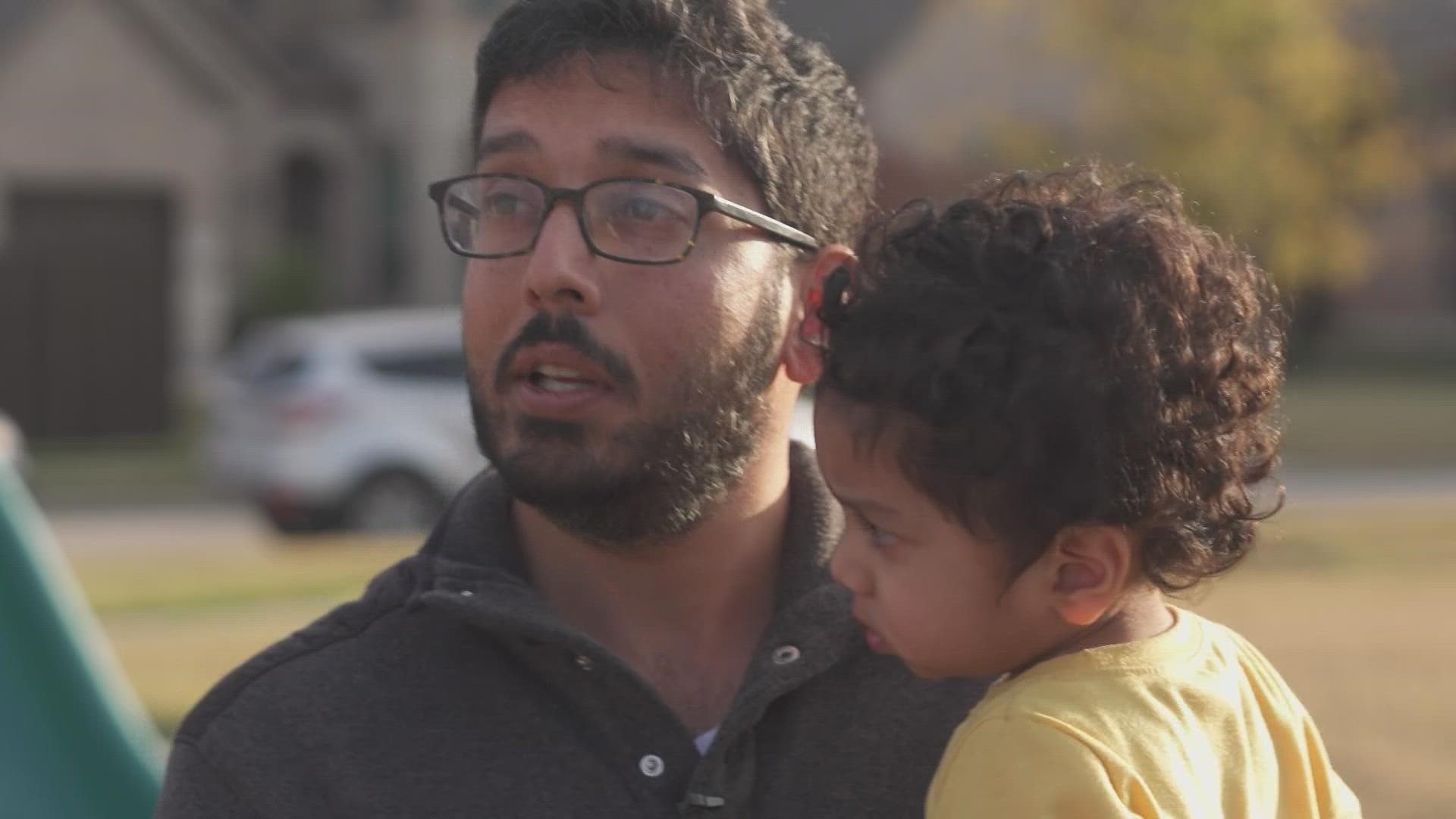RICHARDSON, Texas — A University of Texas at Dallas bioengineer who has devoted the first decade of his career to the study and treatment of a rare childhood cancer received some powerful extra motivation during the pandemic: the diagnosis for his own infant son.
Dr. Shashank Sirsi, an assistant professor of bioengineering at UT-Dallas, studies less invasive ways to treat cancers, specifically neuroblastoma.
"What we do in this lab, essentially, is to make sound sensitive particles," he explained.
"We encapsulate drugs. We release them at the site of the tumor," he said of the approach that uses microbubbles, gas spheres smaller than 10 micrometers, that can carry medications to a specific location and be "imploded" to release medications on command. It is a method that Sirsi says could take the place of radiation treatments that often have lasting negative effects.
"These are all things that occur because of the therapy itself, not the actual cancer," he said of radiation damage. "That was my motivation getting into pediatric cancer in the first place. Because those effects they can happen 20-30 years down the line."
But he is a bioengineer who works in an office and a lab and admits that in his decade of research had never actually met a neuroblastoma patient.
That is, until his own son was born.
"It's surreal. It's still hard to believe," he admitted. "When it was confirmed, that was just an absolute shock to both me and my wife."
Neuroblastoma, the most common cancer in infants, strikes about 800 children each year in the US. And J.D., the son of a scientist who studies it, was suddenly diagnosed with it, too. It started with a lump on his abdomen when he was just 3 months old. An ultrasound showed seven lesions on his liver.
"It still boggles my mind a little bit," Sirsi said.
But, this neuroblastoma story is working its way to a happy ending.
J.D. is 20 months old now. He responded very well to traditional chemotherapy. He is in remission.
His dad a bioengineer, and his mom a physician of internal medicine, were able to get him the help he needed quickly.
"For many, there are so many hurdles to overcome," J.D.'s mom Dr. Priya Joshi said. " We're just very, very thankful and lucky that we're fortunate with his prognosis and with the outcome."
The outcome for a dad who studies this cancer is that he knows he chose the right field of medicine. And he knows he will work even harder now.
"Neuroblastoma is always going to be the main goal," he said of his area of focus.
"One of the first questions I'm going to ask myself right now is if, God forbid, something were to happen, were my son's cancer to come back, would I be comfortable giving what we develop in our lab to my own son?"
A son and a survivor who is all the motivation a scientist, and a dad, will ever need.
Dr. Sirsi's research at the Erik Jonsson School of Engineering and Computer Science at UT-Dallas is supported in part by more than $1 million in grants from the National Institutes of Health. The co-principal investigator is Dr. Sonia L. Hernandez, research associate professor at The University of Chicago.

